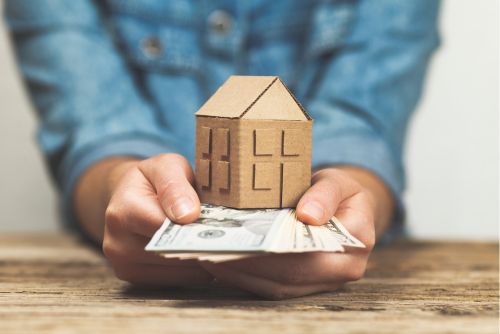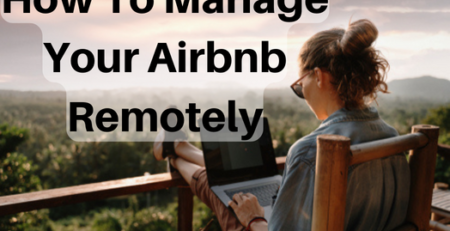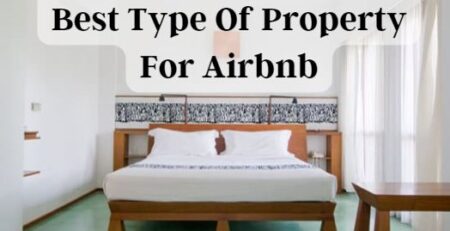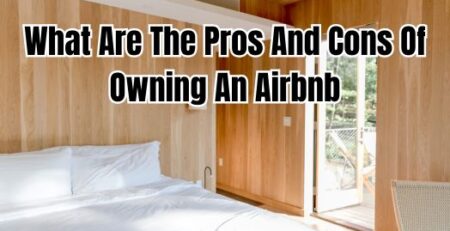What Is The Downside Of Owning An Airbnb
As an avid traveler and a believer in the power of innovation, I am always on the lookout for new and exciting ways to explore the world.
One such innovation that has caught my attention is Airbnb ownership. The idea of owning a property and renting it out to travelers from all corners of the globe is both intriguing and enticing. However, like any venture, we should know what is the downside of owning an Airbnb.
In this article, we will delve into the downside of owning an Airbnb property. While it may seem like a dream come true at first glance, there are certain challenges that come with being an Airbnb host.
From inconsistent service to maintenance and upkeep responsibilities, these downsides can sometimes overshadow the potential benefits. So if you’re considering venturing into the world of Airbnb ownership or simply curious about what it entails, buckle up as we uncover both the pros and cons of this innovative approach to hospitality.
Cons Of Airbnb Ownership
Airbnb ownership may seem like a good investment, but the drawbacks soon outweigh the benefits. Unreliable service is a major drawback. Airbnb helps hosts connect with guests and manage reservations. The platform occasionally has technical issues that disrupt communication and bookings. This makes hosts and guests distrust the system, which is frustrating.
Another Airbnb drawback is the cleaning fee. Cleaning your property is important, but charging a fee may deter guests. Some travelers prefer vacation rentals without extra fees. Potential guests may choose other accommodations if your cleaning fee is too high or unnecessary.
Airbnb rental income is also unpredictable. It may seem like a great way to earn passive income, but seasonality, market demand, and competition from other listings can affect your rental income. Before buying an Airbnb property, consider these factors to prepare for rental income fluctuations.
Finally, managing an Airbnb requires constant vigilance and attention to detail. You must promptly respond to guest inquiries and ensure your property meets Airbnb standards. Having multiple properties or other responsibilities while hosting Airbnb can make this time-consuming and demanding.
Airbnb property ownership has many benefits, despite its drawbacks. Discussing the benefits of Airbnb ownership shows how this venture can be rewarding despite its challenges.
Pros Of Airbnb Ownership

You’ll love Airbnb’s flexibility and extra income. Airbnb lets you profit from the booming short-term rental market. Four reasons to own an Airbnb and make money:
- Higher Rental Income: Compared to traditional long-term rentals, Airbnb properties often generate higher rental income. By renting out your property on a nightly or weekly basis, you can charge premium rates and capitalize on peak travel seasons or local events. This flexibility in pricing enables you to maximize your earning potential.
- Flexibility and Control: As an Airbnb host, you have full control over when to rent out your property and who stays there. This level of flexibility allows you to accommodate your own schedule and personal needs while still generating income from your property. Whether it’s renting out spare rooms in your primary residence or investing in a dedicated vacation home, the choice is yours.
- Opportunity for Property Appreciation: Investing in an Airbnb property offers the potential for long-term appreciation of the property’s value. As more people discover the benefits of short-term rentals, demand for such properties continues to grow. This increased demand can drive up property values in desirable locations, leading to capital gains over time.
- Diversified Tenant Portfolio: Unlike traditional long-term rentals that rely on one tenant at a time, having an Airbnb allows for a diversified tenant portfolio with multiple guests throughout the year. This reduces reliance on any single tenant and minimizes vacancy periods between tenants. Additionally, by attracting travelers from different backgrounds and regions, hosting through Airbnb can provide unique cultural experiences.
With these advantages in mind, let’s explore how innovative tenant portfolio diversification strategies can boost Airbnb’s property profitability without limiting its real estate investment potential. Marketing to international travelers, business professionals, and students can increase your property’s occupancy rate. This boosts rental income and lets you give guests distinct cultural experiences for a memorable stay.
Since you’re not dependent on one group of renters, catering to a diverse tenant portfolio can also reduce seasonal and economic risks. This strategy guarantees long-term profitability and maximizes your Airbnb property’s real estate investment potential.
Diversified Tenant Portfolio
Innovative tenant portfolio diversification can maximize your Airbnb property’s occupancy rate and reach new market segments.
Rental property owners must adapt to the changing rental market to stay ahead of the competition. Targeting business travelers, families, and pet owners can help. By accommodating different needs and preferences, you increase your guest pool and property occupancy year-round.
Successfully managing a diverse tenant portfolio requires property management. We know, as Airbnb hosts, that each guest needs special care. Business travelers may want a well-equipped workspace and reliable Wi-Fi, while families may want cribs or high chairs. To attract different demographics and stand out from other vacation rentals, your listing must meet these requirements.
Diversified tenant portfolios increase occupancy rates and reduce the risks of relying on one type of guest. If your target audience is only tourists during peak vacation seasons, off-peak demand may be low. Expanding to business travelers or long-term renters seeking temporary accommodation creates a more stable income stream year-round.
Diversifying your Airbnb tenant portfolio increases flexibility and adaptability. Understanding the needs of different guests and tailoring your listing using effective property management techniques can increase occupancy rates and guest diversity. This approach reduces risk and increases income from various sources.
Higher Income Potential

With a diverse tenant portfolio, I can reach more market segments and increase Airbnb income. Short-term rentals have more income potential than long-term rentals because they can charge premium rates during peak seasons or events. This lets me maximize earnings and capitalize on high-demand periods.
Having a diverse tenant portfolio lets me serve different guests. I can attract more guests year-round by targeting families, business travelers, and tourists. This increases my occupancy rate and lets me charge more for specialized amenities or customized experiences for each guest segment.
Airbnb properties offer additional income beyond rental fees. I can provide airport transfers, guided tours, and in-house dining. These add-ons improve guest satisfaction and boost my revenue. I can stand out from competitors and get more bookings by diversifying my offerings and offering unique experiences.
Finally, short-term rentals let me be more flexible with pricing than long-term leases. Dynamic pricing algorithms and seasonal adjustments let me adjust my rates to market demand and competition. This lets me charge competitive rates during high-demand seasons and attract guests during low-demand seasons to maximize my earnings.
As exciting as it is to tap into new markets and unlock higher income potential with a diversified tenant portfolio, managing multiple properties without proper systems can lead to inconsistent service. Without proper systems, managing multiple properties at once increases the risk of neglecting maintenance and repairs, which could cost a lot.
Inconsistent Service
Consistent service across all properties is essential to giving guests a memorable experience. Airbnb owners risk inconsistent service. Hosts use positive reviews and recommendations to attract guests. If your guests receive inconsistent service, they may leave negative reviews and book less.
Inconsistent service takes many forms. Managing multiple Airbnb properties can be difficult. Responding to guest inquiries or concerns may be delayed. This inactivity may negatively impact your guests’ experience.
Airbnb booking fluctuations also cause inconsistent service. Some hosts may have high demand and occupancy rates, while others may struggle to fill their properties. Thus, hosts who rely solely on Airbnb income may struggle to maintain quality and customer service year-round.
Also difficult is maintaining cleanliness across multiple properties. Some hosts hire cleaners, but others do it themselves to save money. This method may not ensure that property cleanliness standards are consistent. Inconsistency here can upset guests, who expect clean accommodations regardless of property.
Airbnb hosts must plan and organize to provide consistent service. Standardizing guest communication and property management is crucial for a consistent experience across listings. By tackling these challenges and being consistent in every aspect of hosting, you can exceed guest expectations and succeed in Airbnb’s competitive market.
More Space For Guests

Imagine entering a spacious and comfortable Airbnb rental to relax after a day of city exploration. Airbnb properties offer more space than hotels, which is a major benefit. When staying for a long time or with a group, travelers appreciate the extra space.
Offering ample space as an Airbnb host can increase bookings and positive reviews from guests who value comfort and freedom. More guest space has many benefits, but there is a downside. Larger properties require more work and resources. Cleaning and organizing multiple rooms, bathrooms, and common areas takes time. It may also cost more for water and electricity. As an Airbnb owner, you must keep your rental clean throughout to meet guest expectations.
More guest space allows for larger groups. Your property may wear out faster. More people using bathrooms and kitchen appliances may accelerate deterioration and damage that requires repairs or replacements. To give guests a great experience and preserve your property, you must address these issues quickly.
Adding guest space to Airbnb rentals has pros and cons. It attracts travelers seeking comfort and freedom, but maintaining a larger property can be time-consuming, expensive, and damage-prone due to increased occupancy. However, by addressing these drawbacks, Airbnb hosts and guests will benefit from your rental properties’ space.
Increased Flexibility
As a host, owning an Airbnb gives me control over when I want to rent out my space and when I want to use it for myself. If I need to take a last-minute trip or have unexpected guests, I can block off those dates and use my property without restrictions.
This flexibility is also beneficial for guests. Unlike hotels, Airbnbs allow guests to communicate with me directly and arrange for a time that works best for them. Some guests may require early check-ins or late check-outs due to travel arrangements or other reasons.
Beyond timing, Airbnb offers a wide range of unique properties to suit guests’ preferences and needs, from cozy cabins in the woods to modern lofts in the city center. This allows guests to personalize their stay and make it unforgettable.
Despite all these benefits and increased flexibility, owning an Airbnb property can increase host responsibilities. It requires constant maintenance and cleaning between guest stays, which can be time-consuming and demanding. Additionally, one must comply with local short-term rental regulations, which may require additional paperwork and fees.
Given the benefits of increased flexibility from Airbnb ownership, it’s important to weigh the downsides, such as the added responsibility and obligation of being a host. Know what is the downside of owning an Airbnb before making a decision.
Disadvantages Of Hosting Guests

Hosting guests requires constant attention and effort to ensure their satisfaction. Owning an Airbnb can bring in extra income and provide opportunities to meet new people, but there are also several drawbacks. As a host, you have little control over who books your property, and some guests may be disruptive or difficult. This can lead to noise complaints, property damage, or safety concerns.
Hosting guests means constantly cleaning and maintaining the property to prepare it for each guest’s arrival, which requires time and money for cleaning supplies, laundry services, and possibly hiring help if you can’t handle it all. You must also be available 24/7 to address any issues or concerns raised by guests.
Hosting guests in your home may invade your privacy and disrupt your daily routine. While some hosts have separate accommodations for guests, many rent out rooms in their primary residence, which means sharing common areas like kitchens or living rooms with strangers. It can be uncomfortable to have people constantly moving in and out, especially if they don’t follow house rules.
Finally, owning an Airbnb may affect neighbors. Guests may not always be aware of local customs or regulations, which could disturb the neighborhood’s peace. The constant flow of people staying at an Airbnb property may frustrate neighbors who preferred a quieter environment before short-term rentals became popular.
Given these drawbacks, owning an Airbnb may seem more difficult than it seems, but there are ways to mitigate the risks and ensure a positive hosting experience. One common concern is property damage, which will be discussed in the next section.
Concerns About Property Damage
Airbnb owners worry about property damage when they host guests. Property damage, from broken furniture to carpet stains, can be a headache for hosts. Most guests are respectful and treat your place as their own.
As an Airbnb host, you should set clear expectations for guests and have house rules about using amenities, handling fragile items, and hosting parties. You can also request a security deposit to cover any damages that may occur. Accidents can still happen, so hosts need
Airbnb-specific insurance to cover guest-caused property damage. Carefully reviewing the terms and coverage options will help you choose the best policy.
By clearly communicating with guests about house rules and expectations, requesting security deposits, and obtaining adequate insurance coverage, hosts can minimize the downside of owning an Airbnb while maximizing its benefits as a source of income and opportunity for hospitality industry innovation.
Managing Multiple Listings

As an Airbnb host, managing multiple listings is difficult. Owning an Airbnb can be a great investment, but it takes time and effort to communicate with guests, coordinate check-ins and check-outs, and clean and maintain each property for new guests.
Airbnb hosts need strong organizational skills to manage multiple listings by tracking reservations, availability calendars, and guest inquiries. Efficient property management software can centralize information and automate processes.
The physical demands of managing multiple listings require you to clean between guests and resolve any issues during their stay. You must be available at all times to give your guests a good experience.
Managing multiple listings can be difficult, but hosts can maximize their investment property earnings by diversifying their rental business across properties or locations.
As an Airbnb host, managing multiple listings can be challenging, but it offers great opportunities for rental business growth. However, it takes careful organization and dedication to ensure guest satisfaction.
Challenges With Guest Behavior
You must anticipate unexpected guest behavior issues to successfully manage them. The majority of guests are pleasant and respectful, but some will push boundaries or have unrealistic expectations. This can range from guests requesting excessive amenities or services to those who cause disturbances or damage to your property.
As an Airbnb host, you should set clear house rules, provide guidelines for shared spaces, and have a system for guests to report issues. When multiple parties are sharing the same space, there is always the possibility of disagreements and clashes.
Unfortunately, some guests will behave badly, such as by making excessive noise, partying, or vandalizing your property. As a host, you must take steps to reduce these risks, such as screening potential guests and enforcing strict policies.
Airbnb hosts face many challenges when managing guests, from managing difficult guests and conflicts to dealing with unruly behavior that can damage your property’s reputation and condition. By setting clear expectations and protocols and having mechanisms in place to handle unexpected situations, hosts can mitigate these challenges and provide a positive experience for both themselves and their guests.
Maintenance And Upkeep

As mentioned, guest behavior can be a challenge when owning an Airbnb, but property maintenance should also be considered. Airbnb ownership may seem appealing, but there are drawbacks.
- Regular Maintenance: Owning an Airbnb means having a constant flow of guests coming in and out of your property. This can result in wear and tear on your space, requiring regular maintenance to keep everything in top shape. From fixing leaky faucets to repainting walls, there will always be tasks that need attention.
- Costs: Alongside regular maintenance comes costs. As the owner, you are responsible for ensuring that your property remains inviting and comfortable for guests. This may involve hiring professionals to handle repairs or investing in new furniture and amenities from time to time. These expenses can add up quickly and eat into your profits.
- Time Commitment: Keeping an Airbnb running smoothly requires a significant time commitment on your part. Not only do you have to handle bookings and communicate with guests, but you also need to dedicate time towards maintaining the property itself. It’s crucial to be prepared for this additional workload before venturing into owning an Airbnb.
Despite these drawbacks, many Airbnb owners succeed by carefully managing their properties and implementing efficient maintenance and upkeep systems. However, you must understand these challenges before planning.
Potential Risks Of Hosting
Owning an Airbnb can be a great way to make money, but there are risks and drawbacks. Hosts must worry about the safety of their property and guests. They are inviting strangers into their home, so there is always the risk of damage or theft. Most guests are respectful and responsible, but hosts have had to deal with unruly or destructive guests.
It’s important to consult with an insurance professional familiar with short-term rentals like Airbnb to ensure you have adequate protection against unforeseen incidents. Accidents happen, and as a host, you could be held responsible if someone gets injured at your property.
Finally, many hosts overlook the impact on their neighbors and community. If you live in a residential area, frequent guest turnover may disturb the peace and quiet. Some neighborhoods have regulations or restrictions on short-term rentals, which could result in fines or other penalties.
Considering the risks of hosting guests at your property should not deter you from doing so but rather serve as a reminder to take the necessary precautions. By screening guests, obtaining adequate insurance, and following local laws, you can minimize any negative consequences.
Considerations For Property Location

Hosting an Airbnb can be a great way to make extra money from a vacation property or spare room, but there are drawbacks. Property location is one of the most important factors to consider.
If your Airbnb property is in a remote area or a neighborhood without tourist attractions, it may be hard to find guests, which can lead to longer vacancies and lower rental income.
Depending on where your Airbnb is, you may have to deal with rowdy partygoers or loud neighbors, which could lead to complaints from neighbors and property damage, causing stress and costs. Local short-term rental regulations and restrictions can also affect property location. Some cities require hosts to obtain permits or licenses for vacation rentals. If your property is in such an area, you may face legal consequences if you don’t comply.
Airbnb can be profitable, but property location can be a problem. A less-than-ideal location may make it hard to find guests and attract unwanted behavior from guests or neighbors. Navigating local short-term rental regulations can also be difficult.
Issues With Long-Term Guests
Long-term guests can cause conflicts and wear and tear on your property, making Airbnb hosting a profitable venture but a drawback. When renting out your property long-term, consider these:
- Increased maintenance: With long-term guests, the wear and tear on your space is likely to be more significant compared to short-term stays. Regular usage of facilities such as kitchens, bathrooms, and appliances can lead to higher maintenance costs. From plumbing issues to broken furniture, these unexpected expenses can eat into your profits.
- Potential conflicts: When people live together for an extended period of time, conflicts are bound to arise. As an Airbnb host, you may find yourself dealing with disputes between long-term guests or between them and neighbors. Resolving these conflicts can be time-consuming and may require you to step in as a mediator.
- Lack of flexibility: One major downside of having long-term guests is the lack of flexibility it brings. Unlike short-term rentals where hosts have control over their availability dates, once you have committed to housing someone for an extended period, it becomes difficult to change plans or accommodate other bookings that could potentially generate more income.
Owning an Airbnb comes with challenges, especially when dealing with long-term guests. Increased maintenance costs, potential conflicts among tenants or neighbors, and reduced flexibility are all important factors to consider before deciding if rental properties support your goals as a host. However, by communicating clearly and setting expectations from the start, you can minimize the downside.
Final Thoughts
What is the downside of owning an Airbnb? In conclusion, owning an Airbnb property has its fair share of downsides. While the potential for higher income and a diversified tenant portfolio may be appealing, there are some significant drawbacks to consider.
The inconsistent service provided by guests can lead to headaches and added stress, as well as the ongoing maintenance and upkeep required to keep the property in top condition.
Additionally, hosting on Airbnb comes with potential risks that shouldn’t be overlooked. From damage to the property caused by guests to liability issues that may arise from accidents or injuries, there’s a level of uncertainty involved in opening up your home to strangers.
Furthermore, the location of your property can greatly impact its success on Airbnb, so careful consideration must be given to ensure it’s in a desirable area.
Overall, while owning an Airbnb can offer financial benefits and a unique renting experience, it’s important to weigh these advantages against the potential downsides. It requires active management and attention to detail to mitigate risks and maintain a positive guest experience. Ultimately, each individual must carefully assess their own circumstances and priorities before deciding if owning an Airbnb is the right choice for them.
Frequently Asked Questions
Are There Any Legal Considerations Or Regulations To Be Aware Of When Owning An Airbnb Property?
As an innovator who seeks new opportunities, it’s important to understand the legalities of owning an Airbnb property.
Zoning laws, permits, and licenses may vary by location, and some cities limit the number of days you can rent your property or tax Airbnb hosts.
To avoid legal issues that could dampen your innovative spirit, stay informed and proactively follow local regulations. This way, you can confidently navigate the legal landscape while enjoying the benefits of being part of the dynamic Airbnb community.
How Can I Ensure The Safety And Security Of My Guests And My Property?
I take many steps to protect my guests and property. First, I’ve installed a cutting-edge security system with surveillance cameras and motion sensors to monitor suspicious activity. I also give my guests clear instructions on how to operate the locks and alarms, ensuring their safety. I thoroughly screen potential guests before accepting their reservation and communicate with them throughout their stay to address any concerns. By prioritizing safety and security, I keep my guests safe and protect my property.
What Are The Potential Financial Risks Associated With Hosting Guests On Airbnb?
Airbnb hosts face financial risks. Airbnb’s host guarantee program covers some guest-caused property damage, but it may not cover everything and may have limitations.
Damaged property may require repairs, resulting in lost income while your listing is unavailable. Another risk is fluctuating demand and pricing. Location, seasonality, and competition may prevent your listing from booking enough to cover expenses or make a profit. Airbnb hosts should carefully consider these financial risks before hosting.
What Are The Challenges Of Managing Multiple Airbnb Listings?
Multiple Airbnb listings require a lot of time, effort, and attention to detail. From accurately representing each listing with appealing photos and descriptions to responding to inquiries and booking requests, active communication and availability are needed.
To keep guests happy across all listings, you must stay organized, stay on top of bookings, and provide excellent customer service. Coordinating check-ins and check-outs can be difficult, especially if guests arrive and leave on the same day across multiple properties.
If you can handle it, managing multiple Airbnb listings can boost revenue and allow you to host a diverse range of guests seeking unique experiences.
How Can I Handle Difficult Guest Behavior Or Complaints?
Addressing difficult guest behavior or complaints is difficult, but it’s essential to being a successful Airbnb host. I believe in doing so quickly and professionally.
First, I actively listen to the guest’s concerns and empathize with them to better understand and solve their problems. Second, I communicate openly and clearly, offering clear explanations or alternatives when needed, to maintain a positive relationship with the guest and make their stay as comfortable as possible.
I use Airbnb’s customer support team for help when resolution seems unlikely. By being proactive and adaptable, I can handle difficult guest behavior and complaints while maintaining a high standard of hospitality innovation.











